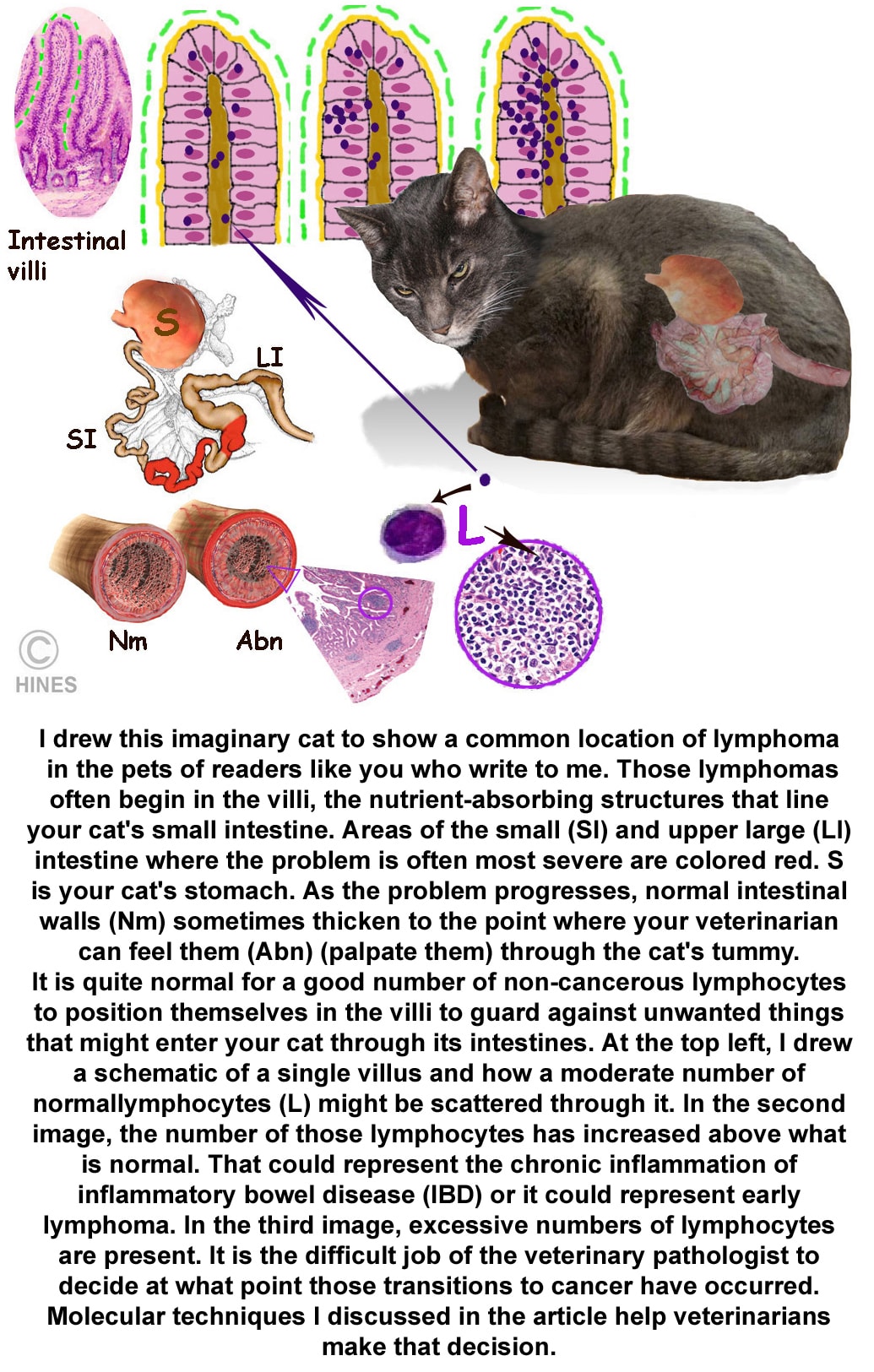mediastinal lymphoma in cats symptoms
Other symptoms of lymphoma include. Get NHVs most useful pet cancer supplements in one holistic pack.
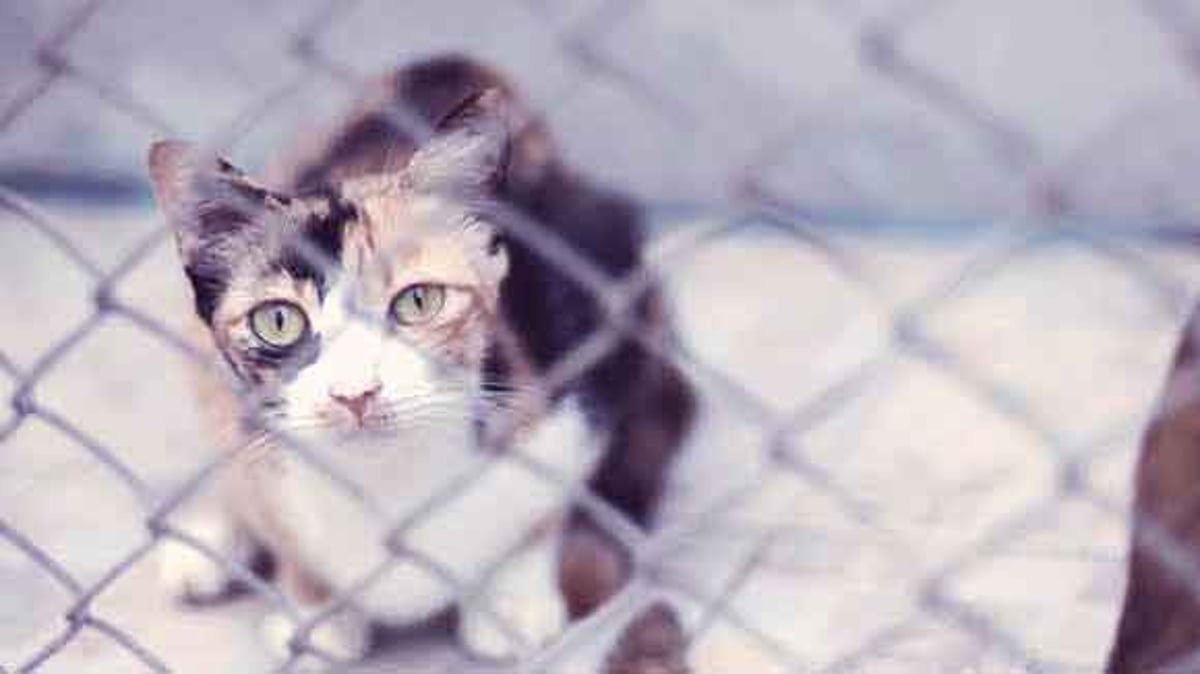
Cancer Lymphoma In Dogs And Cats
Affected cats often develop weight loss vomiting and diarrhea.

. The serological determination of VIF and ViLeF is useful to determine the treatment of the cat with lymphoma because the prognosis is reserved in the. Clinical signs arise from. Mediastinal Lymphoma in Cats If your cat has mediastinal lymphoma youre most likely to notice respiratory problems like difficulty breathing gasping or wheezing.
Ad Help your pet cope with symptoms like nausea loss of appetite and energy. Recent studies following widespread FeLV vaccination in the UK are lacking. In addition many of the symptoms of lymphoma are ones that are commonly associated with other illnesses and conditions that can affect a cat.
Mediastinal form occurs in the space between the pleural sacslungs Open mouth breathing. Moreover it is the most common cause of hypercalcemia in cats. However some of the aforementioned variants are linked to other medical conditions.
Causes of lymphoma in cats. Following are some forms of lymphoma along with the related symptoms in cats. Decreased appetite or though in rare cases an.
Respiratory issues including a persistent cough and difficulty breathing. Symptoms of Chest Cavity Lymphoma Mediastinal Associated with cats diagnosed with feline leukemia the mediastinal form of lymphoma generally causes growths within the chest cavity and lymph nodes in that area. Talking about exact causality in any type of cancer is complex since most malignant tumors are caused by a multitude of factors such as the environment genetics and the general health of the animal.
Anorexia weight loss cough and ptyalism. The most affected area is usually the nasal cavity and this variant is accompanied by strange discharge and difficulty breathing. Weight loss and poor condition Change in thirst usually increased Change in appetite usually anorexia Vomiting and diarrhoea Increased urination Sneezing Coughing Increased respiratory rate effort or noise Nose bleeds and mucus discharge from the nose Facial.
It is the most common form of lymphoma. Some cats have a decrease in appetite some have an increased appetite while others have no change in appetite. Mediastinal lymphoma is the most common lymphoma in FeLV positive cats and occurs in younger cats around 2 to 3 years of age.
Lymphoma in the lymph nodes comes as swellings around the neck shoulder blades and knees. This form of lymphoma will often have a partial response to chemotherapy treatment then symptoms will return shortly after. However discrimination between the two most common lesions thymoma and lymphoma may be challenging especially when smallmedium lymphocytes represent the prevalent population.
1 The average age for alimentary lymphoma is 8 to 9 years. Some of the signs of intestinal lymphoma in cats are weight loss changes in appetite and vomiting andor diarrhea. As lymphocytes travel all around the body lymphoma can occur in many sites.
Renal lymphoma symptoms include signs of kidney. Which cats are more likely to get lymphoma. It may be time to say goodbye if your cat is experiencing any of the following symptoms.
The central nervous system nasal cavity skin kidneys and other areas. The following are some of the more common symptoms. Renal Lymphoma in Cats Lymphoma can affect the kidneys as well.
Alimentary lymphosarcoma occurs in the stomach intestines liver and spleen. Mediastinal lymphoma is the most common lymphoma in FeLV positive cats and occurs in younger cats around 2 to 3 years of age. In cats there are multiple manifestations of this disease and they are typically distinguished by the anatomical site that is affected.
Many cats will experience a build-up of fluid in the chest that will require immediate attention and at this point many owners choose to humanely euthanize due to the severe respiratory distress and the aggressive care. The aim of this retrospective multi-institutional study was. It is most common in cats between 5 and 9 years of age.
Mediastinal masses occur in dogs and cats and are often investigated with cytology. Mediastinal lymphoma occurs within the chest and therefore is. Some cats become lethargic and depressed.
The cranial respiratory sounds3 Other symptoms that are observed less frequently are. In this case cell hyperplasia occurs in different parts. 1 Compressioninvasion of local mediastinal structures.
This form of lymphoma will often have a partial response to chemotherapy treatment then symptoms will return shortly after. Symptoms of feline lymphoma. Overview is rare in thymicmediastinal lymphoma.
In addition he presented positive serology for ViLeF. Feline lymphoma can affect a number of different organs and there are a number of different types. 2 Pleural effusion Pleural effusion contributing to respiratory distress along with direct effects of mass.
Historically feline mediastinal lymphoma has been associated with young age positive feline leukaemia virus FeLV status Siamese breed and short survival times. Symptoms vary depending on the tumour site. Lymphoma is a cancer of the white blood cells.
The symptoms of lymphoma in cats depend on where the cancer is growing. Therefore diagnosing lymphoma can be difficult. Respiratory issues including a persistent cough and difficulty breathing.
Symptoms and Types Symptoms are highly variable and depend upon the anatomical form of this tumor. Most cats will lose their appetite and consequently lose weight. Symptoms of feline lymphoma Intestinal lymphoma symptoms.
Severe weight loss Inability to put on weight Lethargy Chronic vomiting Chronic diarrhea Dehydration No longer interested in eating Urinating inappropriately around the. As the mass grows the cat will experience breathing difficulties. Renal lymphoma symptoms include signs of kidney failure such as.
Certain anatomic presentations are associated with an improved prognosis such as nasal lymphoma and lymphoma of the cranial mediastinum lymphoma arising in the. Gastro-Intestinal Lymphoma in Cats. Most cats who develop lymphoma are 9-13 years old.

Lymphoma In Cats Atlantic Veterinary Internal Medicine
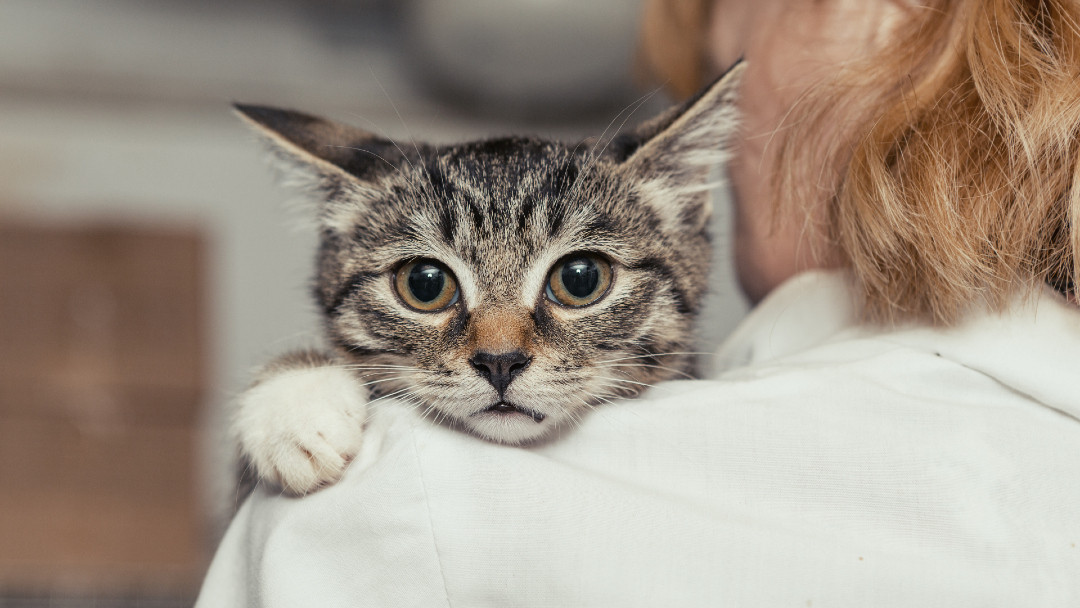
Lymphoma In Cats Causes Symptoms Treatment Purina

Feline Lymphoma Cats Are Not Small Dogs
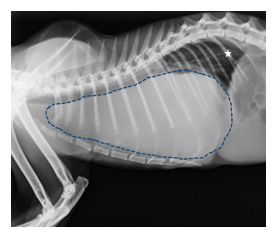
Case Report Mediastinal Lymphoma In Cat Alicia Moj Anatomy Physiology
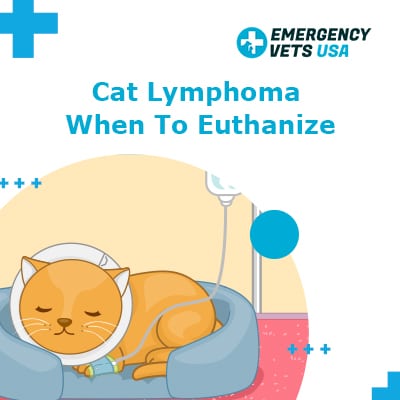
Cat Lymphoma When To Euthanize Our Opinion

Lymphoma In Cats The Conscious Cat

Understanding Lymphoma In Cats
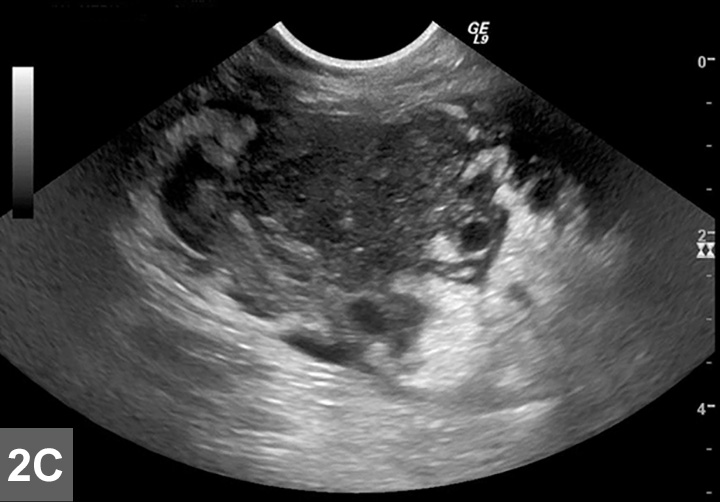
Feline Lymphoma Clinician S Brief
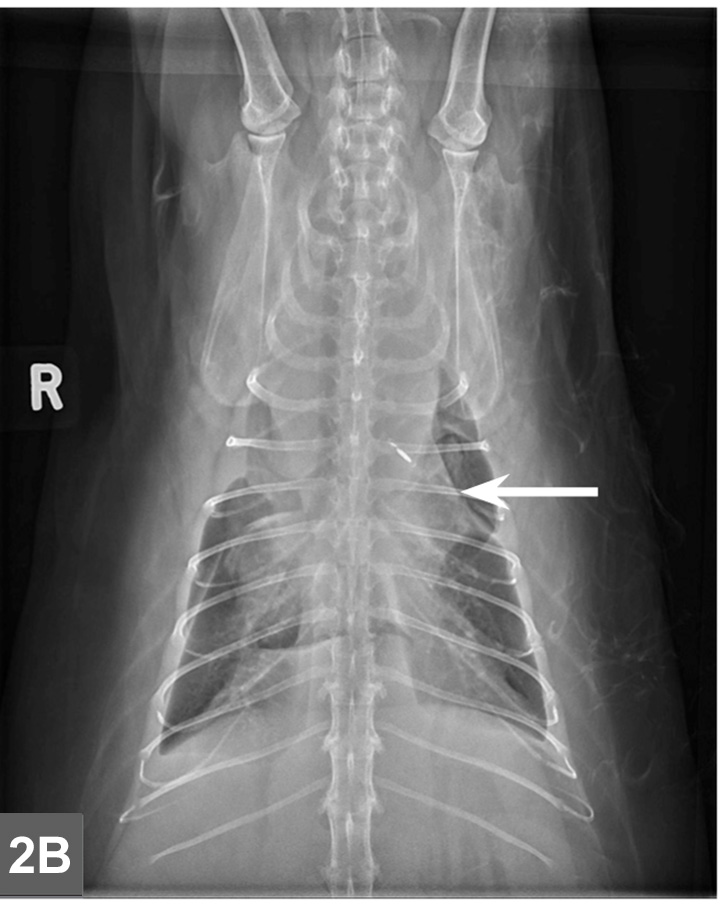
Feline Lymphoma Clinician S Brief
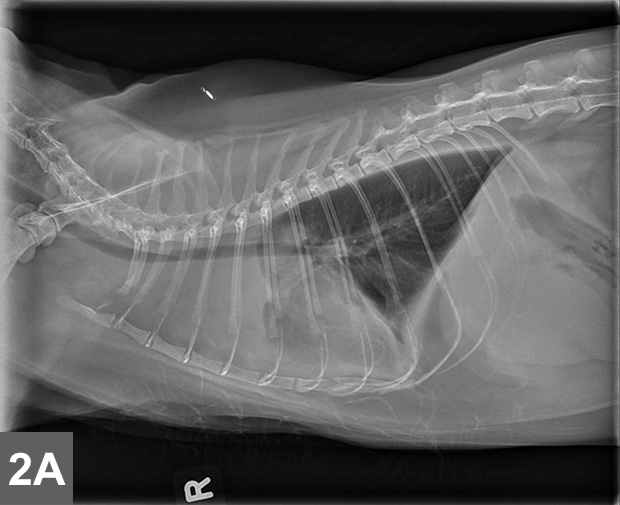
Feline Lymphoma Clinician S Brief

Cardiac Involvement Secondary To Mediastinal Lymphoma In A Cat Regression With Chemotherapy Sciencedirect

Lymphoma In Cats Veterinary Partner Vin
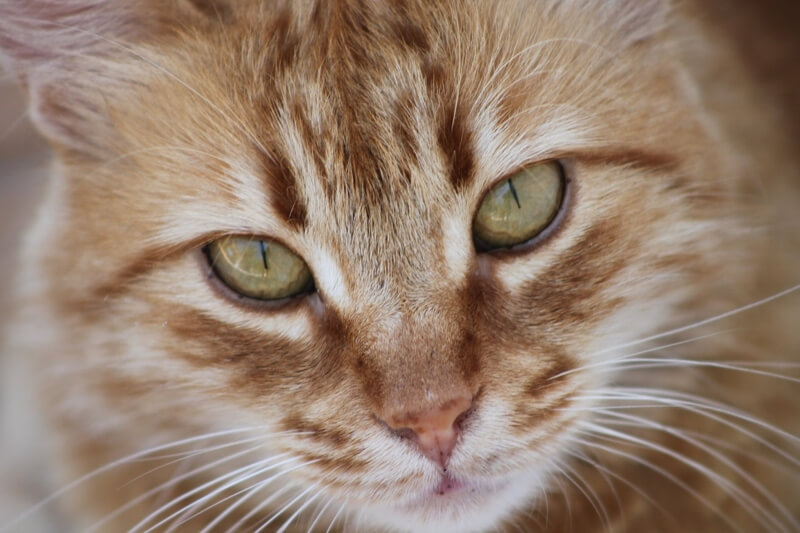
Understanding Lymphoma In Cats

Understanding Lymphoma In Cats
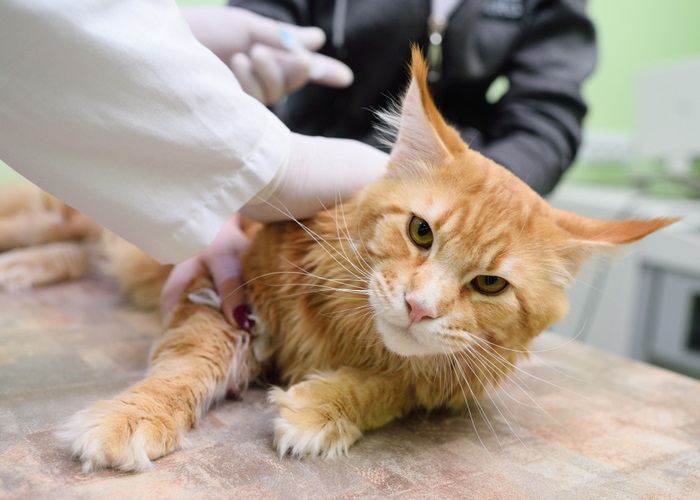
Lymphoma In Cats Symptoms Diagnosis Treatment All About Cats
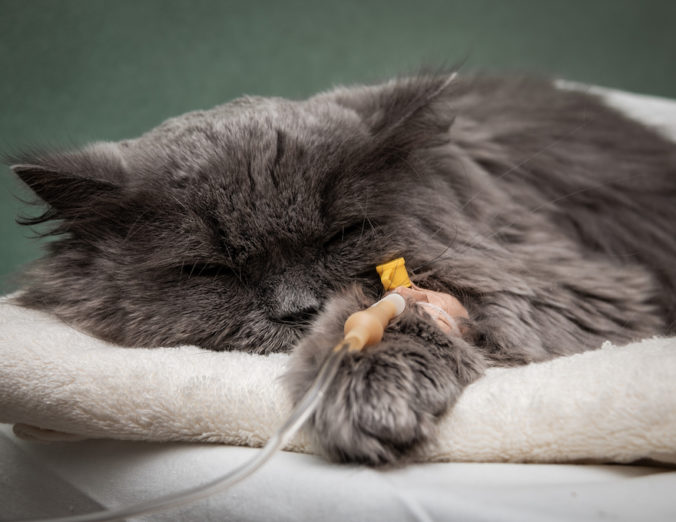
Diagnosis And Treatment Of Feline Lymphoma Glories Veterinary Hospital

